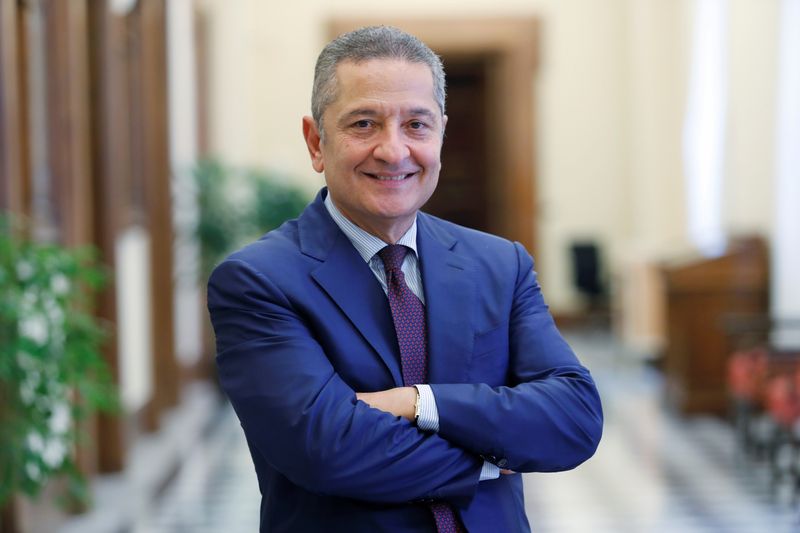FRANKFURT (Reuters) - Greater use of renewable energy doesn't necessarily translate into higher prices and it may in fact help cut inflation compared to continued reliance on fossil fuels, European Central Bank board member Fabio Panetta said on Wednesday.
Panetta was taking aim at the notion, defended by some economists including his fellow board member Isabel Schnabel, that adopting low-emission sources of energy could initially result in higher costs, particularly during the process of transition.
"The green transition need not lead to higher inflation in the future," Panetta said. "Appropriate public policies that compress the demand for fossil fuels and stimulate the production of cheaper renewable energy sources can help to contain inflationary pressures and may even help to reduce inflation compared with a counterfactual situation."

He made the case for lower taxes or subsidies for green energy and the opposite for fossil fuels.
The ECB is battling with the highest inflation rates in decades although this has mostly been spurred by higher costs for traditional forms of energy, such as natural gas, following Russia's invasion of Ukraine.